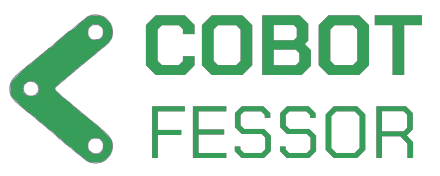Cobots: A Giant Leap Ahead of Industrial Robots
Since the introduction of collaborative robots, or “cobots,” the automation industry has advanced significantly. Cobots have many advantages over their industrial robot equivalents from the past. We will discuss the benefits of cobots in this blog and how they represent a significant advance in automation.
The Evolution of Automation
Automation has evolved from the era of rigid, isolated industrial robots to the age of adaptable, collaborative robots known as cobots. This shift prioritizes safety, flexibility, and human-robot collaboration, revolutionizing how industries approach automation.

Improved Safety
Safety is the top priority for cobots. Their design is centered on collaborating with humans, and they have cutting-edge sensors and safety features that enable them to do so without posing a serious risk. Cobots, unlike industrial robots, do not require the use of safety barriers and cages, resulting in a safer and more pleasant workplace.
Unimaginable Flexibility
Flexibility personified, cobots are. Using user-friendly interfaces, they are simple to program and re-program for non-specialists. They are the best choice for sectors with changing tasks and frequent production changes because of their adaptability. On the other hand, industrial robots frequently need extensive reconfiguration, which can be expensive and time-consuming.
Human-Centered Design
The agility, problem-solving, and decision-making skills of humans are mimicked in cobot design. This implies that they are capable of carrying out a variety of tasks that industrial robots were previously unable to do. They are ideal for industries that demand a human touch because they perform well in complex assembly work, quality control, and even medical procedures.
Reduced Size, Reduced Risk
Cobots typically are not as strong or as large as industrial robots, but this is a characteristic rather than a drawback. They are safer to use in close proximity to people because of their reduced force and speed. Industrial robots, however, frequently present a serious safety risk because of their massive size and strength.
Major Advance
Cobots are an important advancement in automation technology. They provide businesses with a number of benefits by fusing the strengths of human workers with the accuracy and consistency of robots.
Enhanced Efficiency: Cobots are more accurate and productive than humans, which results in higher-quality products overall.
Enhanced Workplace Morale: Cobots free up human workers to concentrate on more interesting, imaginative, and fulfilling aspects of their jobs by taking over repetitive and physically demanding tasks.
Cost-Effective: Cobots are a long-term cost-effective solution, especially for industries with quickly changing production needs due to their flexibility and ease of programming.
An Improved Automation Method
Cobots have become a more effective substitute for industrial robots, particularly in fields where human collaboration, adaptability, and safety are essential. We predict that as technology develops and cobot capabilities increase, their use will become even more widespread.
Conclusion
While industrial robots have long served as the foundation of automation, cobots mark a paradigmatic shift in how we view automation. They are a better option in many situations due to their emphasis on safety, adaptability, and human collaboration. Cobots are the undisputed leaders in the race for the future of automation as businesses look to streamline their operations and establish more pleasant working environments.
